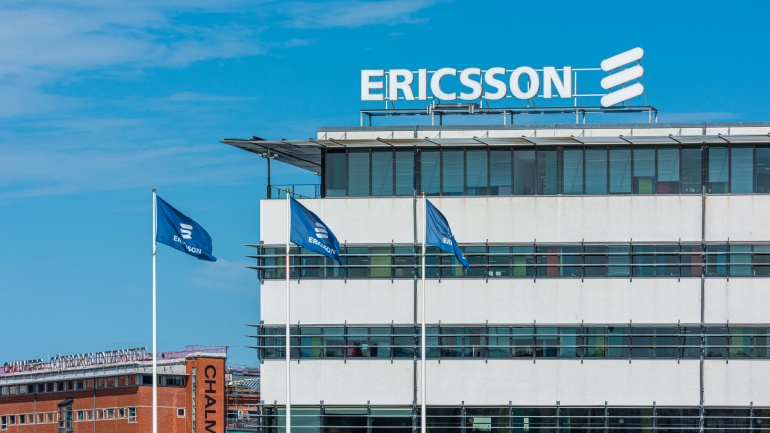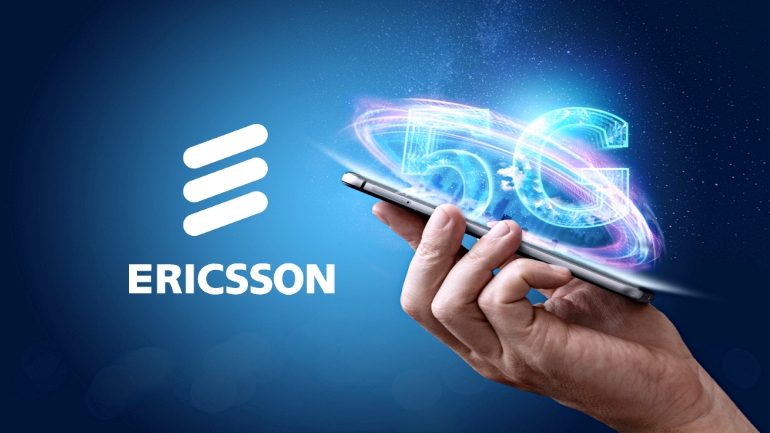BT and Ericsson have launched a new cooperative venture in which the two companies will collaborate to deliver private 5G networks to Industry 4.0 clients. The details of the multimillion-pound arrangement have not been released, although it is reported that the partnership duration is to be for several years. Under the terms of the agreement, BT will use Ericsson technology to provide private 5G networks to partners in a variety of industries, including manufacturing, healthcare, and transportation and logistics, with a focus on enabling valuable solutions such as asset tracking, predictive maintenance and automation. Asset tracking, predictive maintenance, networked sensors, real-time data processing, automation and robots are among the industry 4.0 solutions promised. The actual implementation may vary depending on the environment, but the private 5G network, which enables all of these use cases with low latency connectivity, is the main selling point. Katherine Ainley, CEO Ericsson…
The successful demonstration of renewable energy sources in a 5G mobile site has been confirmed by Deutsche Telekom and Ericsson. Both companies collaborated to convert a live radio station utilizing a management system to optimize power supply and demand by leveraging solar and wind energy. The site in Dittenheim, 120 kilometers north of Munich, has been partially powered by solar panels for over a year as part of a prior collaboration between the two enterprises. Wind turbines have now been installed as part of a new trial to increase the site’s renewable energy capability. Acting as a second renewable energy power source, the wind turbine is capable of providing up to 5kW of additional electricity. When the conditions are ideal, the facility may run entirely on renewable energy, eliminating the requirement for use of the electrical power grid. The Ericsson Power System, which handles the two power sources…
Ericsson has ceased operations in Russia in order to comply with international sanctions imposed in the weeks following Russia’s invasion of Ukraine. Nokia, too, has announced its intention to abandon the Russian market, having already ceased supplies and begun to relocate R&D out of the country. However, Nokia intends to continue supporting the maintenance of current equipment on humanitarian grounds. Over the years, Ericsson has collaborated with a number of Russian mobile providers. The company recently formed a strategic relationship with MTS to create private 5G networks, as well as the testing and implementing next-generation technology with the operator. Ericsson has said that it will indefinitely cease relevant operations with Russian clients. The vendor also stated that it is in discussions with customers and partners, and that staff in Russia have been placed on paid leave. In Russia, Ericsson employs around 600 people. In a stock market notification…
Ericsson, a global networking company, has announced its plan to buy Vonage, a cloud-platform company based in the United States, for $6.2 billion. Ericsson is getting a more contemporary communications strategy with Vonage, which includes a cloud contact center, communications APIs, and a VoIP solution. The move reflects Ericsson’s growing attempts to join the enterprise market, with the goal of enabling these clients to take use of new services in addition to the high speeds enabled by 5G networks. This merger, though, is not about 5G. Ericsson is concentrating on Vonage’s communications APIs, which it hopes will allow it to access a global network of developers working on 4G and 5G technologies. Vonage is a cloud-based communications provider that allows clients to incorporate communications, such as voice, video, and messaging, into apps and products through its Vonage Communications Platform. Ericsson believes that Vonage’s cloud platform, which now serves…
Swedish vendor Ericsson has signed an agreement to provide a 5G “core” to Virgin Media O2, a new company established by a merger between Virgin Media and the mobile operator O2. Ericsson will build a VMO2 standalone 5G core, that will incorporate 4G and non-standalone 5G cores, to create dual-mode 5G core, as referred to by Ericsson. The vendor has been a supplier to mobile operator O2 UK for quite some time now. The previous deal between the two companies focused on an ongoing “network modernization program” that was introduced in June 2020. Since the older core used by O2 was also that of Ericsson, it was appropriate to continue with the same technology vendor. Moreover, the new agreement also allows Virgin Media O2 to provide a standalone 5G service. UK operators have based their 5G launches on a “non-standalone” architecture that allows the 5G RAN to revert…
Ericsson has announced the launch of its Private 5G, which will reshape on-site connectivity by providing secure and simple 4G LTE and 5G Standalone Connectivity (SA), targeting the manufacturing, mining and process industries, offshore and power companies, as well as ports and airports. Ericsson Private 5G enhances and makes business operations using cloud network management easier, keeping sensitive data on-site without downtime, and guarantees high performance under Service-Level Agreements (SLAs). The Ericsson 5G Private network is based on a 4G/5G radio and dual-mode core technology for extensive indoor and outdoor environment use cases, that include tracking assets and real-time automation, a digital twin to help optimize production operations, effective quality checks using augmented reality, and smart surveillance drones. This technology seamlessly merges with a variety of business projects, devices, and applications to increase productivity, deliver new offerings, boost customer engagement, and improve the overall work environment. The…
The Swedish multinational networking and telecommunications company Ericsson has introduced three new radios in its enterprise-level Massive MIMO portfolio, and bolstered their RAN Compute portfolio with six RAN Compute products to accelerate the 5G mid-band release and expand next-generation mobile technology. Ericsson stated that the three new radios and six new RAN Compute products will enable operators to make better use of the full spectrum of mid-band, that is around 3.5 GHz. The products are powered by Ericsson Silicon, the company’s system on a chip (SoC), which provides advanced processing capabilities for the rapid development of energy-efficient, high performance networks and ensures greater security. With the new mid-band spectrum, telecom service providers can leverage their 5G spectrum resources to deploy services quickly and efficiently, thereby delivering higher quality and more responsive experiences to mobile broadband subscribers. Mid-band bridges speed, capacity and coverage gaps between low and high frequency…
Ericsson has once again raised its year-end estimate for global 5G subscriptions to 220 million, while predicting that more than 1 billion people will have access to next-generation coverage over the same period. The company foresees that four out of ten mobile subscribers will be using 5G services by 2026. In their November 2020 Mobility Report, Ericsson predicted real 5G traction, as well as the progress in the deployment of new features in network and device areas, regardless of the concerns caused by the Covid-19 pandemic. Ericsson believes that 15% of the world’s population, or more than 1 billion people, will live in an area with 5G coverage by the end of 2020. They expect that number to grow to 60% or 3.5 billion consumers by 2026. Ericsson has also added another 30 million to the end-of-year estimate of the number of 5G subscribers, having previously announced the…
The GSMA, an industry organization representing the interests of global mobile network operators, has announced that major vendors ZTE, Ericsson, Huawei and Nokia have passed an independent security audit of product development and lifecycle management processes and intend to submit a network kit for evaluation in the second test round. This testing system is called the Network Equipment Security Scheme (NESAS) and claims to have been designed to increase industry confidence in telecommunications network equipment while promoting a more coordinated mobile market. NESAS was jointly established by GSMA and 3GPP. NESAS provides an industry-wide security assurance framework to improve the level of security throughout the mobile industry. The scheme defines security requirements and an assessment system for secure product development and product life cycle processes, and uses 3GPP-defined security test cases to assess the security of network equipment. The audits are conducted by world-class security auditing companies on…
Ericsson, one of the world’s leading providers of technology and services to telecom operators, has completed the first transglobal 5G data call over live commercial 5G networks, showcasing its Spectrum Sharing technology. Through their collaboration with 5G ecosystem industry leaders Qualcomm Technologies, Swisscom and Telstra, and using a 5G smartphone from Chinese manufacturer OPPO, Ericsson continues to demonstrate its drive towards commercial dynamic spectrum sharing. The Swedish tech giant said that the November 29 data call connected Bern, Switzerland and the Gold Coast, Australia using Ericsson Spectrum Sharing deployed on Swisscom’s and Telstra’s commercial 5G networks at the respective sites. The call was achieved using spectrum sharing on a 3GPP Frequency Division Duplex (FDD) band and pre-commercial OPPO 5G handsets employing the Qualcomm Snapdragon X55 5G Modem-RF System. Moreover, OPPO is the first 5G device manufacturer to implement Ericsson Spectrum Sharing in its smartphones. As part of the…













